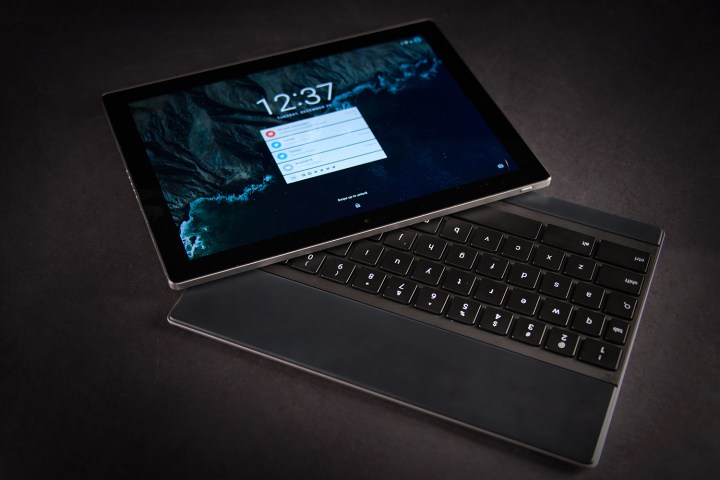Alongside updates to its critically acclaimed Pixel line, Google announced that it plans to get back into tablets. It was sort of a given, with Android 13 focusing on making the operating system work better both with big screens and across different devices. The company even showed off its upcoming tablet, scheduled for 2023.
It would be tempting to cheer for the Pixel Tablet as Google is going all-in. It’s got Android 12L and Android 13 to take advantage of larger screens. It’s working on rolling out updates to 20 or so of its mobile apps. It’s even working on Tensor, a custom chip that’s going to make the Pixel Tablet more like an iPad than before. So why do we feel a sense of skepticism? Simple: Google has been directionless in both hardware and software, which makes it exceedingly difficult to believe it has any serious long-term plans.
Fool me once

If I’m not impressed by Google’s newfound love for tablets and big-screen devices, it’s because the company is known for talking the talk but not quite walking the walk. We’ve known for years that Android tablets suck because of their software. Sure, an argument could be made that the company couldn’t control third-party app developers, but how about its own apps?
That’s why the biggest sticking point with me is the much-vaunted rollout of tablet-optimized apps this week. Google seems to think that we should be cheering for them, but it’s hard to imagine why.
As someone who’s used far too many dead-end mobile platforms to count, there’s nothing more familiar than the enthusiasm of a company finally getting something important right. There’s also nothing more familiar than watching that initial burst of enthusiasm fizzle out. Google could very well keep this momentum going and create a suite of large-screen
Going beyond a failure to execute

The bigger issue here is that it’s hard to tell what Google thinks “getting tablets right” actually means. It’s not just that Google has failed to execute, it’s that Google has consistently failed to draw a through line of its most recent tablet efforts. Not in design, not in purpose, not even in the operating system. Sure, Google may say that this time it’s for real, but it’s lurched and stumbled every other year, clutching at disparate and contradictory goals.
Does Google think tablets are cheap just because Amazon’s Fire tablets sell? Does it want a premium large-screened tablet because the iPad Air is so good? Or is the Pixel C what the ideal tablet should look like? Or perhaps, we want a full desktop operating system on a tablet like Microsoft’s Surface or Samsung Dex? Google doesn’t seem to know, and designing
Say what you will about Apple, Samsung, or Microsoft, but each iteration builds on what’s come before. You can pick up the Samsung Galaxy Tab S5e and the Tab S8 and you sort of get how one led to the other. You can look at a Surface Pro 3 and look at a Surface Pro 8, and the lineage is clear. The Pixel Slate and Pixel C look very different from each other, while Google’s Pixel Tablet doesn’t even look like it came from the Pixel Team, but more like something from Nest Hub spare parts bin. Is there any faith that this time next year there will be a Pixel Tablet 2 being teased, or is it more likely that we’ll be waiting till 2025 for the next Pixel Sheet with
I leave you with this quote from Google hardware chief Rick Osterloh: “Google’s hardware team will be solely focused on building laptops moving forward, but make no mistake:
Editors' Recommendations
- I compared Google and Samsung’s AI photo-editing tools. It’s not even close
- A new Google Pixel Tablet is coming, but it’s not what you think
- The first Google Pixel 9 Pro hands-on photos are here
- Something strange might happen to the Google Pixel Fold 2
- The 6 biggest announcements we expect from Google I/O 2024

